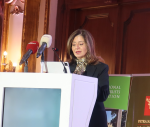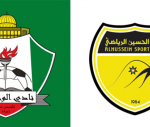You are here
Jordan achieves advanced status in rule of law index
By Dana Al Emam - Jun 04,2015 - Last updated at Jun 04,2015
AMMAN — Jordan ranked 41 out of 102 world countries and eighth among 31 upper middle-income countries in the 2015 Rule of Law Index issued by the World Justice Project (WJP).
The Kingdom also ranked second among seven regional countries listed in the index, preceded only by the United Arab Emirates and followed by Tunisia, Morocco, Lebanon, Egypt and Iran.
Countries with highest achievements at the international level were Denmark, Norway and Sweden respectively, while Zimbabwe, Afghanistan and Venezuela were at the bottom of the list.
The index measures a country's performance in eight main categories that include constraints on government powers, absence of corruption, open government, fundamental rights, order and security, regulatory enforcement, in addition to civil and criminal justice.
Jordan received a “top” ranking in the absence of corruption, order and security, civil justice and criminal justice categories, while the Kingdom faired “middle” in the fundamental rights and the regulatory enforcement categories. Yet, the performance in the open government category, which is concerned with the public’s access to legal rights and information, was classified as “bottom”.
The index is the result of over 100,000 households and 2,400 expert surveys to measure how the rule of law is experienced in practical everyday situations by ordinary people around the world, according to organisers.
“Effective rule of law helps reduce corruption, alleviate poverty, improve public health and education, and protect people from injustices and dangers large and small,” said William Neukom, WJP founder and CEO, in a statement e-mailed to The Jordan Times recently.
Based on surveys carried out in the cities of Amman, Irbid and Zarqa, the index also evaluates practices of human rights, freedoms and political engagement.
Almost half of surveyed Jordanians said civil society organisations and political parties can express opinions against government policies and actions without fear of retaliation, while the percentage reaches up to 66 per cent for media outlets.
Concerning the freedom of assembly, which is a necessity for civic participation, over 60 per cent of the surveyed sample said people can freely join any licensed political organisation of their choice, while 73 per cent said people can collectively draw attention to an issue or sign a petition.
However, only 38 per cent of the sample said people can freely attend community meetings, while over 60 per cent said people who live in a certain neighbourhood can present concerns to local government officials.
In an opinion poll of over 2,500 legal academics and practitioners in Jordan, court fees, attorney fees, the lack of legal aid and the duration of cases are relatively serious problems in the justice system.
WJP is an organisation that seeks to advance the rule of law around the world through engaging citizens and leaders from multiple work disciplines. It also seeks to raise public awareness on the issue and develop practical and effective related programmes.
Related Articles
AMMAN — Jordan has ranked 2nd country in the Middle East and North Africa (MENA) region and 42nd worldwide in the 2017-2018 Rule of Law Inde
AMMAN — Jordan has dropped four spots while maintaining its second place regionally in the World Justice Project’s (WJP) annual rule of law
AMMAN — Jordan ranked 61st among 142 countries in the Rule of Law Index released by the World Justice Project (WJP) on October 23. Denm














